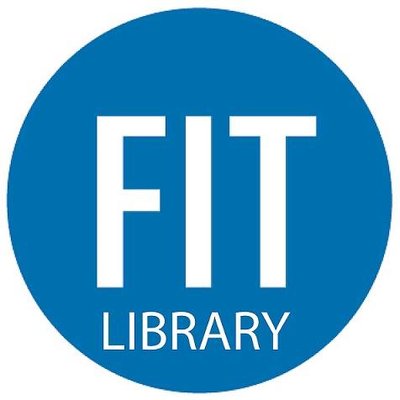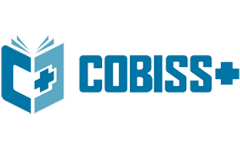Some recurrent Issues in Contemporary Society in the Novels of Birendra Kumar Bhattacharya and Indira Goswami
DOI:
https://doi.org/10.61841/4hq97a62Keywords:
History, Identity, National, Regional and GenderAbstract
The fiction from Northeast India represents the issues of history, identity, migration, culture, and tradition. This region is enriched with distinct culture, tradition, customs, rituals, and beliefs. It is geographically, linguistically, ethnically, and culturally different from the mainland India. Though the novelists write in English, they are unique. Novelists from this region delineate a beautiful geographical location and distinct culture and tradition that is rich in diversity. Political unrest, ethnic conflict, violence, insurgency, kidnapping, and extortion form some of the recurrent themes in Northeast Indian English fiction. All these have created an interesting area of literary study, which is an emerging literary field. Literature from Northeast India represents identity crises from the perspectives of regional history and gender biasness. It blends personal, family, regional, and national issues in order to show the truth of history and identity in different sections of society. Such issues are discussed in select novels and novelists of the said topic.Birendra Kumar Bhattacharya’s Love in the Time of Insurgency (1960) and Mrityunjay (1970) explore representation of regional history in blending regional and national issues. In Indira Goswami's The Man From Chennai (2005) and The Moth-Eaten Howdah of the Tusker (1988), examine how women’s identities are eroded and silenced because of patriarchy and gender discrimination in society.
Downloads
References
1. Baruah, Lalit Kumar. Three Assamese Novels. Web. 11 Nov. 2016. www.inflibnet.ac.in> article >download.
2. Bauman, Zygmunt. Identity. London: Polity Press, 2004. Print.
3. Bently, Phyllis.The English Regional Novel. London: George & Unwin Ltd., 1941. Print.
4. Bhattacharya, Birendra Kumar. Love in the Time of Insurgency. New Delhi: Katha, 2005. Print.
5. ---.Mrityunjay.Trans. D.N. Bezboruah. New Delhi: Orchid Publishers, 2011. Print.
6. De Beauvoir, Simone. The Second Sex. London: Vintage, 1997. Print.
7. Deka, Meeta. Women’s Agency and Social Change: Assam and Beyond. New Delhi: Sage Publications India Pvt Ltd, 2013. Print.
8. Deka, Umesh. Post-War Assamese Novel. Guwahati: Chandra Prakash, 2008. Print.
9. Dutta, K.N. Landmarks of the Freedom Struggle in Assam. Guwahati: Lawyers Book Stall, 1998. Print.
10. Dutta, Subham. “The Naga Movement: A Brief Chronological Understanding." IOSR Journal of Humanities and Social Science (IOSR-JHSS) Volume 21, Issue 5, Ver. 2 May 2016: 37-40. Web.15 Feb. 2017.https://www.semanticscholar.org>…
11. Goswami, Indira. Pages Stained With Blood. Trans. PradipAcharya. New Delhi: Katha, 2002. Print.
12. The Moth-Eaten Howdah of the Tusker. New Delhi: Rupa Publication & Co., 2003. Print.
13. The Man From Chinnamasta. Trans. PrashantGoswami. New Delhi: Katha, 2006. Print.
14. Selected Works of Indira Goswami (MamoniRaisom: A Critical Study of Her Writing). New Delhi: B.R. Publishing Corporation, 1994. Print.
15. Mishra, Tilottama, ed. The Oxford Anthology of Writings From North-East India: Volume 1: Fiction. New Delhi: OUP, 2011. Print.
16. Sabhapandit, Prabhat Chandra. Sociological Study of Post-War Assamese Novel.N.p.: Omsons Publications, 1988. Print.
17. Satarawala, Kaikous Burjor, ed. Indira Goswami (Mamoni Raisom Goswami) & Her Fictional World: The Search for the Sea. Delhi: B.R. Publishing Corporation, 2002. Print.
18. Simson, J.A., and Weiner, E.S. The Oxford English Dictionary. Oxford: Clarendon Press, 1989. Print.
19. Singh, Birendra. Gender Discourse in Indian Writing in English. Punjab: Right Publication, 2014. Print.
20. Swami, Indu. ed. Exploring North-East Indian Writings in English: Volume 2. New Delhi: Swarup Book Publishers, 2011. Print.
Downloads
Published
Issue
Section
License
Copyright (c) 2020 AUTHOR

This work is licensed under a Creative Commons Attribution 4.0 International License.
You are free to:
- Share — copy and redistribute the material in any medium or format for any purpose, even commercially.
- Adapt — remix, transform, and build upon the material for any purpose, even commercially.
- The licensor cannot revoke these freedoms as long as you follow the license terms.
Under the following terms:
- Attribution — You must give appropriate credit , provide a link to the license, and indicate if changes were made . You may do so in any reasonable manner, but not in any way that suggests the licensor endorses you or your use.
- No additional restrictions — You may not apply legal terms or technological measures that legally restrict others from doing anything the license permits.
Notices:
You do not have to comply with the license for elements of the material in the public domain or where your use is permitted by an applicable exception or limitation .
No warranties are given. The license may not give you all of the permissions necessary for your intended use. For example, other rights such as publicity, privacy, or moral rights may limit how you use the material.
















